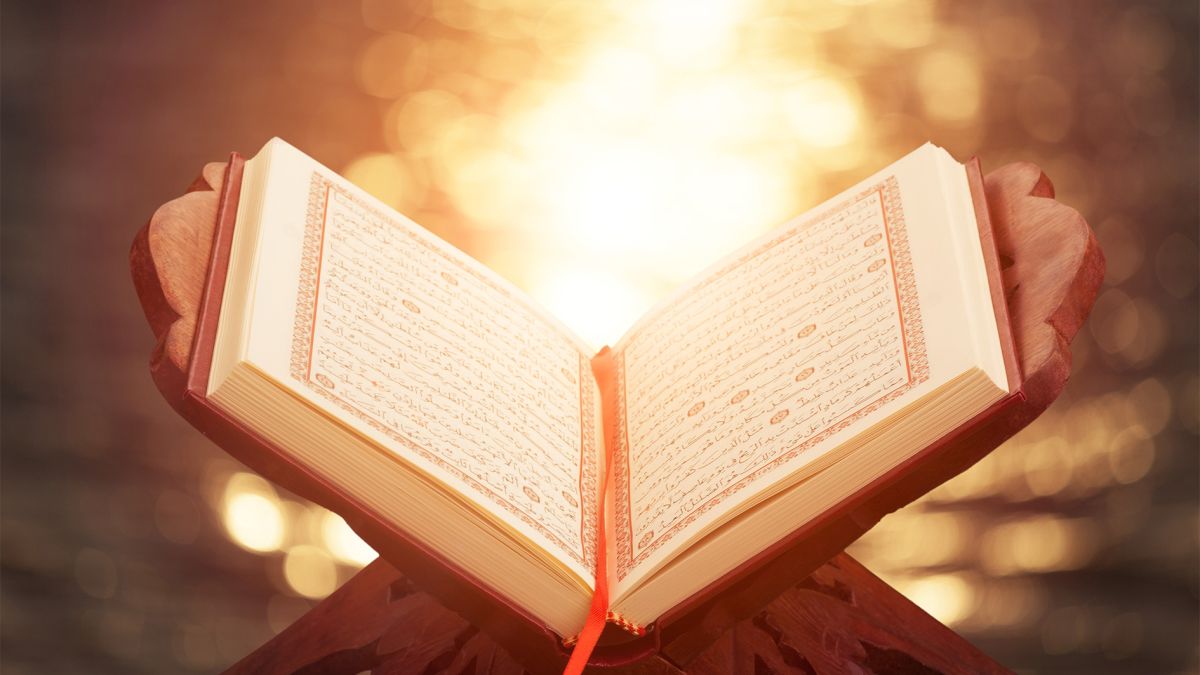Dhikr of Allāh


There is no doubt that the adhkār and supplications are from the best forms of worship. Worship is built upon tawqīf [sticking to what the texts state] and ittibāʾ [following]…
Alhamdulillāh was ṣalātu was salāmu ʿalá nabiyyinaa wa habeeibnaa muhammad
as salāmu ʿalayhikum
1. Performing dhikr is an action of worship, as such it is to be done in the manner enjoined by the Sharee`ah and it is not allowed to invent new methods of performing it.
Shaykh al-Islām ibn Taymīyyah said, “there is no doubt that the adhkaar and supplications are from the best forms of worship. Worship is built upon tawqeef [sticking to what the texts state] and ittibaa [following]…
Therefore, it is not allowed for anyone to legislate new adhkaar and supplications and take them as actions of worship that the people must constantly perform just as they constantly perform the five daily prayers. Rather this is innovating into the religion that Allāh has not given permission. However, if a person were to supplicate with these new supplications on occasion and individually without making this supplication a sunnah for the people then this would not be an innovation. As for the one who takes to a formula of dhikr (wird) that has not been legislated and makes this to be a sunnah to be followed then this is from those things that are forbidden.
Not only this but the legislated supplications and adhkaar contain all the correct goals and all the lofty intentions that a person could ever require and no one but an ignoramus or an extremist would turn away from these and recourse to these newly invented adhkaar. As for what is reported from the Prophet ﷺ with regards to what is performed after the obligatory prayers then this is the well-known adhkaar that can be found in the Ṣaḥīḥs, the Musnads and other books of ḥadīth. As for the Imām and the followers supplicating in congregation after the obligatory prayers then this is a bid`ah that did not exist at the time of the Prophet ﷺ, indeed his supplication used to be within the prayer. This is because the one who is praying is discoursing with his Lord and supplicating at this time would be most fitting, as for supplicating after completing the prayer and the discourse with his Lord then this is not the most fitting time to supplicate.” [Majmūʿ Fatāwá (22/510,595)]
2. The general course with dhikr is that it be said quietly. The least meaning of ‘quietness’ is that one says the dhikr such that the words reach his ears as stated by Imām al-Nawawī and others. It is also allowed to perform dhikr in an audible voice but not a loud voice. The proof for this lies with the saying of Allāh,
“And perform the dhikr of your Lord in your very soul with humility and without loudness in words in the mornings and evenings and do not be of those who are unheedful.”
[al-Aʿrāf (7):205]
The salaf and mufassireen differed about what this verse refers to, some saying that it refers to the prayers, others that it refers to supplication and others that it refers to dhikr in general. However, they all agreed that the intent behind the verse was to point out that one should not be loud when performing dhikr as a general principle.
Refer to the tafsīrs of: al-Tabarī, al-Qurtobee, ibn Kathīr, al-Baghawī, al-Shawkānī, as-Samaa`aanee and as-Saʿdee.
In fact, al-Tabarī quotes the following narrations:
a) Ibn Zayd said about this verse, “do not do so loudly”
b) Mujāhid said, “they have been commanded to perform His dhikr within themselves with humility”
c) Ibn Jurayh said, “…it is detested to raise the voice and shout when performing supplication”
Al-Qurtobee states that meaning of “without loudness in words” is “meaning such that only you can hear your words as Allāh said, ‘neither say your prayer loudly nor in a low voice but seek a middle course’ [al-Isrāʾ (17):110]. This proves that raising one’s voice (in dhikr) is prohibited based on what has been previously discussed in a number of places.”
Ibn Kathīr said, “this is how it is recommended to perform dhikr – that it should not be like a call or very loud.”
3. As for the saying of Allāh,
“So when you have accomplished your holy rites, celebrate the praises of Allāh, as you used to celebrate the praises of your fathers,- indeed, with far more Heart and soul.”
[al-Baqarah (2):200]
Then al-Baghawī and as-Saʿdee state that the meaning of ‘aw ashadda dhikraa’ is that this dhikr be performed more frequently and with more desire than their celebration of the praises of their fathers. Hence, there is absolutely no proof here that one should shout or dance etc…
4. However, on some occasions it is allowed to say some adhkaar loudly such as those that openly manifest a sign from the signs of Islām, for example, the talbiyyah for ḥajj and the takbīr after completing the ṣalāh.
It is in this way that the great Hanafi Imām, al-Ṭahāwī reconciles the aḥādīth commanding one to be silent when performing dhikr and those that say that one should say the talbiyyah for Ḥajj loudly in his amazing book ‘Sharḥ Mushkil al-Āthār’ [14/491-501]
5. The ḥadīth of Abū Mūsáa, “We were in the company of the Prophet on a journey, and whenever we ascended a high place, we used to say takbīr (in a loud voice). The Prophet said, “O people! Be kind to yourselves, for you are not calling upon a deaf or an absent one, but You are calling an All-Hearer, and an All-Seer.” Then he came to me as I was reciting silently, “Lā hawla wala quwwata illā billāh.” He said, “O ʿAbdullāh ibn Qays! Say: Lā hawla wala quwwata illā billāh, for it is one of the treasures of Paradise.” Or he said, “Shall I tell you a word which is one of the treasures of Paradise? It is: Lā hawla wala quwwata illā billāh.”
6. The ḥadīth of Abū Mūsá, “We were in the company of the Messenger of Allāh ﷺ. Whenever we went up a high place we used to say the takbīr and tahleel loudly. The Prophet ﷺ said, ‘O People be merciful to yourselves for you are not calling upon one who is deaf or absent. Indeed He is with you; indeed He Sees and is close.”
Ibn Hajr al-Asqʿalánee said in Fath al-Bārī [6/166], “al-Tabarī said, ‘this ḥadīth constitutes evidence that is disliked to raise one’s voice when supplicating and performing dhikr, this was the opinion of generality of the salaf from the Ṣaḥābah and Taabi`een.’ …It has preceded in the Book of Prayer from the ḥadīth of ibn ʿAbbās that they used to loudly say the dhikr during the lifetime of the Prophet after they had completed the obligatory prayers. The discussion concerning this has preceded there.”
7. While discussing the ḥadīth of ibn ʿAbbās in Fath [2/414] it seems that ibn Hajr determines that the meaning of dhikr in the ḥadīth of ibn ʿAbbās is the takbīr as mentioned in another narration of ibn ʿAbbās also reported by Bukhārī and that the first thing the Ṣaḥābah said after completing the prayer was the takbīr.
He also quotes the saying of al-Nawawī that “ash-Shaafi`ee said concerning this dhikr after the ṣalāh that they said it loudly for a short time only for the purpose of teaching the mannerism of the dhikr and they did not persist in doing so. The preferred course is that the Imām and followers say the dhikr in a low voice unless there exists the need to teach others.”
This is what Allāh has allowed me to quickly put together. All the mistakes in it are mine and Allāh and His Messenger are free of them.
Allāh Knows best
Was salām
Abū Rumaysah
Now read brother Abū Rumaysah’s reply to someone who tried to refute this message above.
alhamdulillāh was ṣalātu was salāmu ʿalá nabiyyinaa wa habeeibnaa muhammad
as salāmu ʿalaykum
> Now to answer Brother Refi, The volumes from Ibn Taymīyyah are
> originally in Arabic and sadly, it is well known that although it
> would be easy to translate it in one way only, the publications issued
> by the Salafīs/Wahabi group translate it in one way and certainly not
> our way. No wonder you would not find ‘saints’ in those translations.
> To bring the matter to further sadness, even Sahi Bukharī and other
> books on aḤadīth have had interpretations and omissions of aḤadīth
> crippling the body of Islām of its True self.
It is a shame that you resort to mere conjecture devoid of any fact whatsoever. If I had actually relied upon a translation of the paragraphs instead of actually going to the Arabic Majmūʿ Fatāwá then maybe your accusation, baseless as it is, may have stood. However I referred to and translated from the Arabic and indeed nowhere in those paragraphs, or the ones preceding or ensuing has ibn Taymīyyah used the word saint. So the question remains: where did the author of your error-riddled translation interpolate this word and the remaining sentences from?
Furthermore, there is only (until a few months ago) one print and version of Majmūʿ Fatāwá which although published by different people coming in different covers etc all have the same print and page numbers. Therefore any possible accusation of there being a ‘Wahhabi version’ effectively disappears. A few months ago the new edition of Majmūʿ Fatāwá was printed in 29 volumes (as opposed to the current 37) with a new print and takhrīj to the aḥādīth.
Hence, if I were to analyse your accusation based upon this example, not to mention many more, then it very quickly becomes clear that it is your superiors who are guilty of false translations and not the other way around.
Finally, I do agree with your final point that the translations to all of the ḥadīth collections in English are sometimes lacking in accuracy and indeed sometimes omit part of the ḥadīth or chapter heading or comment of the author – this is something that is in dire need of rectification and the aid of Allāh is sought. However, these do not and cannot cripple the body of Islām as the detailed Islamic Knowledge is conveyed in Arabic and therefore bad English translations cannot impair the authenticity of the true Islamic knowledge.
May Allāh guide you and I
was salām
Abū Rumaysah
A parting note….
alhamdulillāh was ṣalātu was salāmu ʿalá nabiyyinaa wa habeeibnaa muhammad
as salāmu ʿalayhikum
Allāh says,
“and perform the dhikr of your Lord in your very soul with humility and without loudness in words in the mornings and evenings and do not be of those who are unheedful.”
[al-Aʿrāf (7):205]
When Allāh or His Messenger ﷺ speaks there is left no need for any other to voice his opinion.
was salām

















